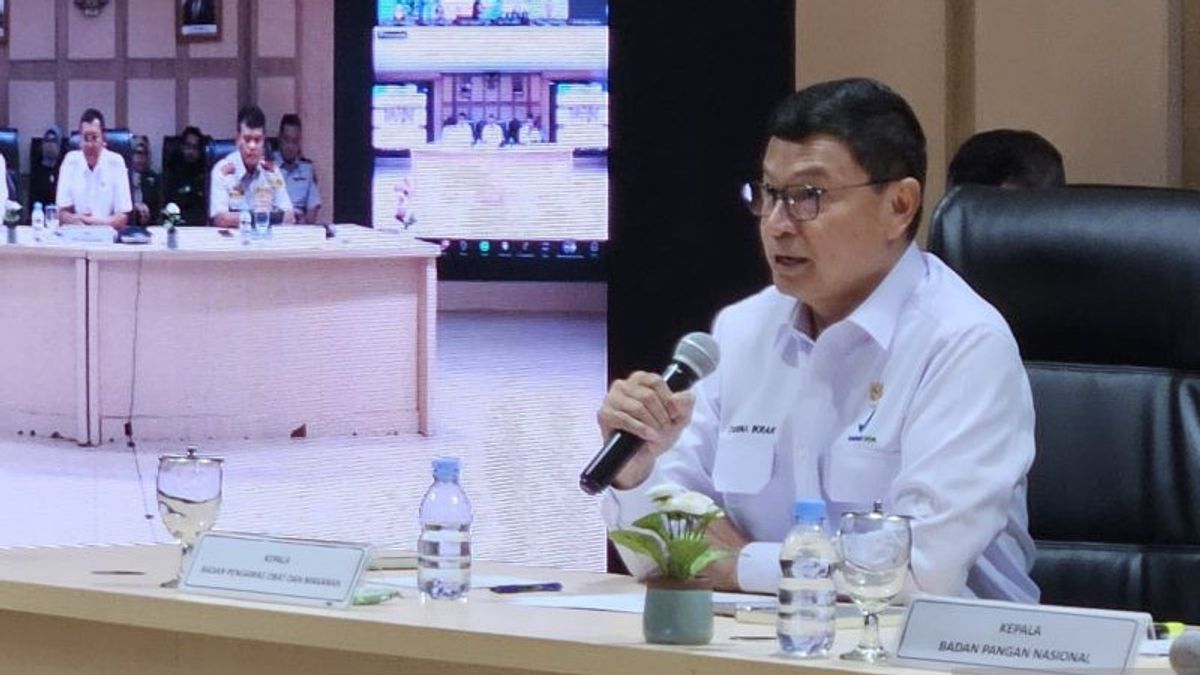JAKARTA - The Food and Drug Administration (BPOM) said it had tested samples of muscat shine wine from Jabodetabek, Bandung, and Bandar Lampung, with parameters of the residual test of chlorpiriphos pesticides, and the results were not detected. there were residual pesticides.
The head of BPOM Taruna Ikrar said that the sample of muscat lava includes several areas, especially where the fruit came in, namely Jabodetabek, Bandung, Bandar Lampung, Surabaya, Pontianak, Makassar and Medan.
"The testing of samples from Jabodetabek, Bandung and Bandar Lampung has been completed at the BPOM National Food and Drug Testing Center (PPPOMN) laboratory," the cadets said at a press conference in Jakarta, Antara, Monday, November 4.
As for the residual test parameters for Chlorpyrifos pesticides, he said, using the Chromatography-Mass Spectrometry/Mass Spectrometry or GC/MSMS method (Limit of Detection or LOD 0.02 ug/kg/Limit of Quantification or LOQ 0.07 ug/kg), with the results not detected.
The cadet said that BPOM is coordinating with the National Food Agency, as a party that has the task of supervising fresh food, related to tracing the truth of the news circulating, as well as following up on sampling and laboratory testing.
"BPOM as the coordinator of food safety risk analysis will continue to coordinate with relevant stakeholders in accordance with its duties and authorities," he said.
He also reminded the public to become intelligent consumers, by recognizing and choosing foods that are safe and quality and paying attention to and implementing food storage methods according to food safety standards, namely by maintaining food storage temperatures at certain temperatures and separating food by type, as well as maintaining the cleanliness of food storage areas, to avoid cross-contamination.
"For fruits that are usually consumed without peeling, it is recommended to wash first with clean water flowing and to be careful with the residue of certain pesticides followed by peeling their skin. Washing and peeling can reduce the risk of exposure to residue and other cypresses that are still left on the fruit surface," he said.
On the same occasion, Head of the National Food Agency (Bapanas) Arief Prasetyo Adi said that based on the results of a rapid review of pesticide residues on 350 samples of muscat shine wines conducted by the Regional Food Affairs Service, it was known that 90 percent of the samples were negative and 10 percent of the samples were detected positive with low levels, below the maximum threshold of residue.
"We have also conducted laboratory tests on 240 pesticide residue compounds in the Shine Muscat wine sample. The results were detected by 219 negative compounds and 21 compounds contain pesticide residues but are still far below the Residual Maximum Limit (BMR)," said Arief.
SEE ALSO:
He continued, from the results of this test it was also stated that there were no dangerous compounds as alleged from the news in Thailand, namely lorpirifivos and endrin aldehyde.
If in the future found products that are not safe in circulation, he said, Bapanas will take firm action according to applicable procedures, such as warning business actors and withdrawing these products from the market to prevent a wider impact on public health.
The English, Chinese, Japanese, Arabic, and French versions are automatically generated by the AI. So there may still be inaccuracies in translating, please always see Indonesian as our main language. (system supported by DigitalSiber.id)













